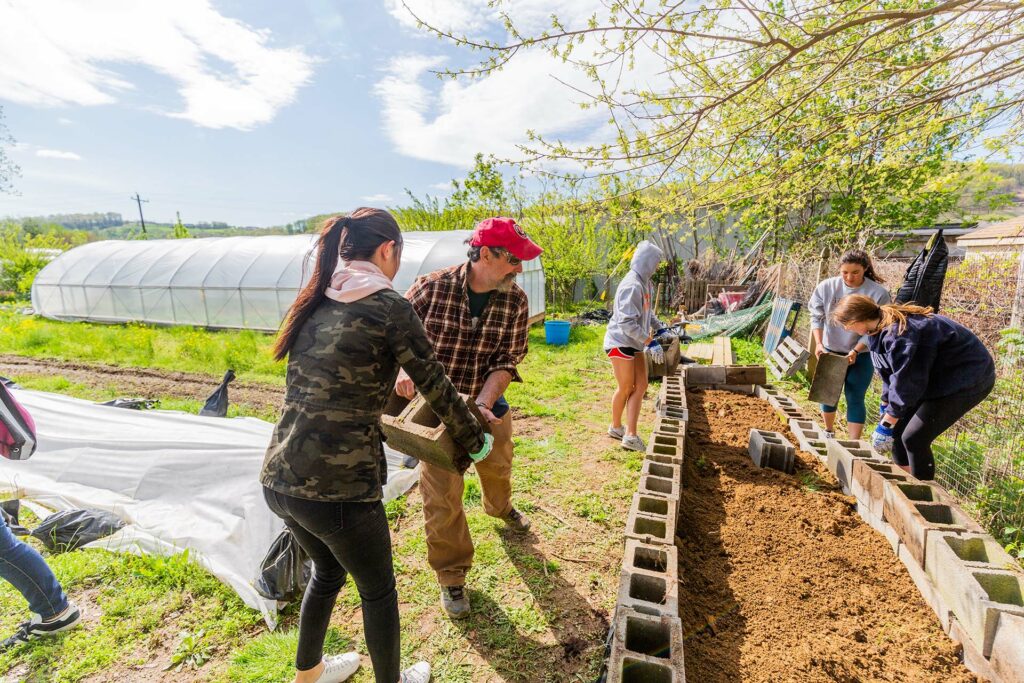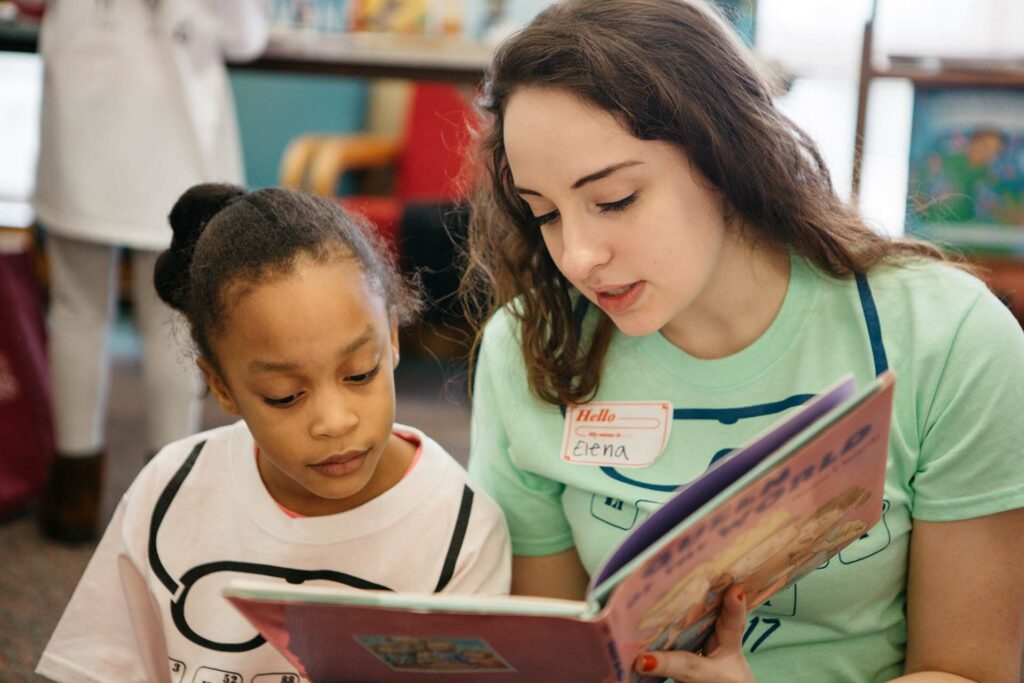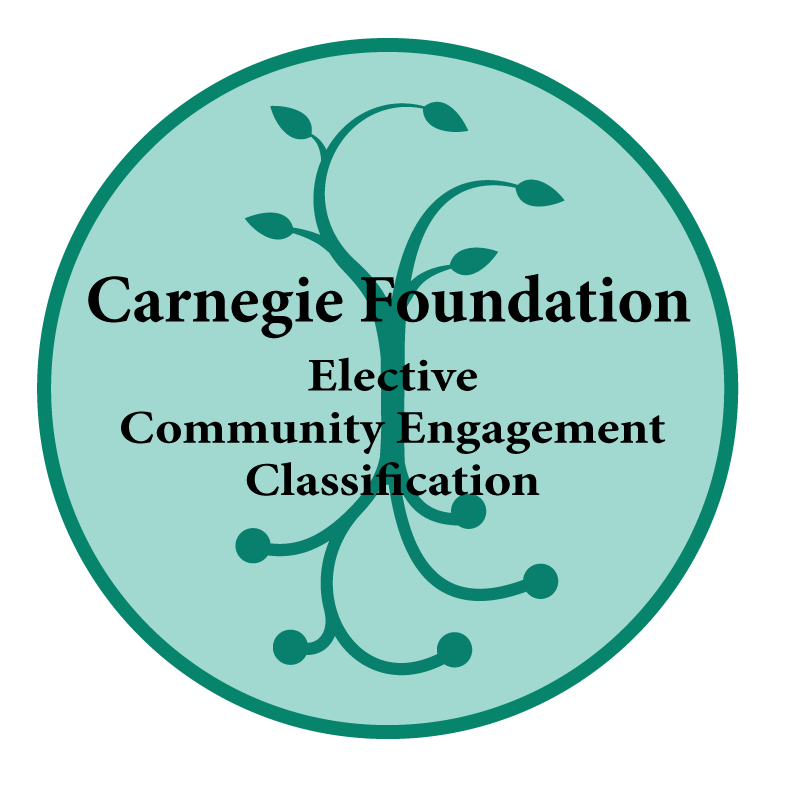Reading with students. Greening up downtown planters. Making meals for homeless families. Inspiring elementary students to consider college. Researching neighborhood history.
Projects like these make an impact across the campus and community.
Now they have earned a national recognition.
Lafayette received the Community Engagement Classification from the Carnegie Foundation, higher education’s most prestigious acknowledgement of an institution’s commitment to community engagement.
 Landis Center for Community Engagement, established in 2018, is built on the foundation of the former Landis Community Outreach Center, named in 1999 after a generous alumnus, and the Center for Community Engagement. The Landis Center promotes active and committed citizenship in students, faculty, staff, and community partners through an understanding of key social and environmental issues, critical thinking, experiential learning, reflective service, and informed action.
Landis Center for Community Engagement, established in 2018, is built on the foundation of the former Landis Community Outreach Center, named in 1999 after a generous alumnus, and the Center for Community Engagement. The Landis Center promotes active and committed citizenship in students, faculty, staff, and community partners through an understanding of key social and environmental issues, critical thinking, experiential learning, reflective service, and informed action.
The center coordinates over 30 weekly civic leadership programs, facilitates engagement opportunities for Greek organizations and athletic teams, and leads Lafayette’s robust America Reads program. In collaboration with Easton Area School District, the Landis Center also developed the Connected Classrooms program, which engages over 600 students and 15 faculty members in experiential learning opportunities each year. These programs collectively contributed over 24,000 volunteer hours in academic year 2018-19.
“I am quite proud of the accomplishments that our campus and community partners have made over the last several years in helping to make this prestigious designation reality,” says Art Kney, professor of civil engineering and director of Landis Center for Community Engagement.
Lafayette’s Carnegie application was prepared and submitted on behalf of the campus community by the Landis Center. As the hub for community engagement activities on campus, the Landis Center connects faculty, students, and staff with community partners in collaborative, mutually beneficial partnerships.
The classification is awarded following a process of self-study by an institution, which is then assessed by a national review committee led by Swearer Center for Public Engagement at Brown University, the administrative and research home for the Carnegie Community Engagement Classification. A volunteer task force comprised of Lafayette faculty and staff supported the application process by gathering data. Community partners assisted as well.
“This collective effort underscores that we are all ‘better together,’ and it is the strength of our relationships that bring us success,” says Kney.
 “The process of applying for the community engagement classification through the Carnegie Foundation revealed so much of the incredible work our campus community is engaged in with our partners in the Lehigh Valley,” says Chelsea Cefalu, assistant director of community-based learning and research. “These grassroots partnerships are the heart of Lafayette’s commitment to leaving the world a better place than we found it, and the Carnegie Classification is an affirmation of that principle.”
“The process of applying for the community engagement classification through the Carnegie Foundation revealed so much of the incredible work our campus community is engaged in with our partners in the Lehigh Valley,” says Chelsea Cefalu, assistant director of community-based learning and research. “These grassroots partnerships are the heart of Lafayette’s commitment to leaving the world a better place than we found it, and the Carnegie Classification is an affirmation of that principle.”
“I am proud to see this national recognition of Lafayette’s commitment to community engagement,” said Lafayette President Alison Byerly. “Collaboration among students, faculty, staff, and our community partners creates powerful learning opportunities for our students as well as offering real benefit to the Easton community and beyond.”
Of the 109 institutions submitting applications for first-time classification, 44 met the standard for classification in the 2020 cycle. Lafayette is now among 359 campuses nationwide and 27 in Pennsylvania to have active classification.

 Landis Center for Community Engagement, established in 2018, is built on the foundation of the former Landis Community Outreach Center, named in 1999 after a generous alumnus, and the Center for Community Engagement. The Landis Center promotes active and committed citizenship in students, faculty, staff, and community partners through an understanding of key social and environmental issues, critical thinking, experiential learning, reflective service, and informed action.
Landis Center for Community Engagement, established in 2018, is built on the foundation of the former Landis Community Outreach Center, named in 1999 after a generous alumnus, and the Center for Community Engagement. The Landis Center promotes active and committed citizenship in students, faculty, staff, and community partners through an understanding of key social and environmental issues, critical thinking, experiential learning, reflective service, and informed action.  “The process of applying for the community engagement classification through the Carnegie Foundation revealed so much of the incredible work our campus community is engaged in with our partners in the Lehigh Valley,” says
“The process of applying for the community engagement classification through the Carnegie Foundation revealed so much of the incredible work our campus community is engaged in with our partners in the Lehigh Valley,” says 